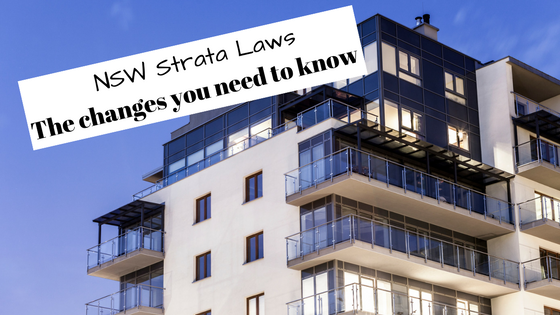There are more than 90 changes to the strata laws that came into force in NSW on November 30 2016. Forced sales is the big ticket item in the strata law changes. Below are some key changes that will affect you in ways you might actually notice.
The government prefers to call it- collective sales. But it basically means that 75% of owners can compel the other 25 to do something radical with a building that may or may not be well past its use-by date.
[activecampaign form=7]
- Just 75% of owners can vote to sell the strata block to developers for bulldozing and replacement of something bigger, shinier, safer and more expensive. Currently, only one dissenting vote can stop this.
- Alternatively, the same percentage of owners can make better use of what they have, and not lose their homes. By adding apartments onto the existing footprint, taking advantage of modern building techniques and relaxed height allowances, they can move back in after builders have updated and extended the building.
- New model by-laws are more pro-pet than no-pet but they only apply to new schemes. The owners can even get a choice of models. Basically, new schemes can choose between pets being allowed, provided the committee gives permission which may not be unreasonably refused. There are adequate other by-laws and actual laws to deal with pets that turn out to be an annoyance, so there’s no need for alarm. Existing by-laws in established schemes will not change unless a considerable majority of owners choose to change them.
- Owners corps will be able to make arrangements with local council parking rangers to patrol their car parks. This is aimed at rogue parking in open strata carparks near commuter hubs. They will not patrol underground car parks for safety reasons.
- Smoke from smoking cigarettes has been defined as a nuisance. It would be easier for you to raise a complaint about the smoke drift from another apartment. On the other hand, owners corps can pass a by-law defining an area of common property as a designated smoking zone.
- Owners corps will be able to pass by-laws setting maximum limits on the number of people living in a unit, albeit with a minimum of two per bedroom and no limits on family members. This is primarily directed at sub-lets overcrowded for commercial purposes and the fines are massive.
- Every scheme in the state must conduct a review of their by-laws.
Some strata residents live in fear of breaching by-laws. Others blindly trundle through life as if they didn’t exist until they get a notice to comply from their strata manager. It will be easier to resolve disputes as well as to punish strata’s bad boys and girls under the new laws.
- The current maximum fine is $220 and that fine can go up to $550 for regular by-law breaches. On top of that, a first overcrowding offence is worth $5,500 and $11,000 for subsequent breaches. Currently, you and your neighbours via your strata committee are responsible for all of the operations at the tribunal but the fines go to the government. Now, the money will go to the owners corp, giving do-nothing committees an added incentive to take action.
- Strata schemes will be able to organise their own mediation systems for resolving disputes in-house, before they get out of hand, albeit with potential help of outside agencies like Community Justice Service (CJS). These in-house facilitations will be accepted as mandatory precursors to any action at the tribunal (NCAT).
- Currently, the initial adjudication of strata disputes is done by only going-over the documents, with the losing side often appealing at a hearing before a tribunal member. Now, they skip the paper adjudication and go straight to the hearing.
There are strata managers who are happy with the changes, too many are woeful. The new laws try to limit the damage the bad ones can do, allowing the better operators to rise above the pack.
[activecampaign form=7]
